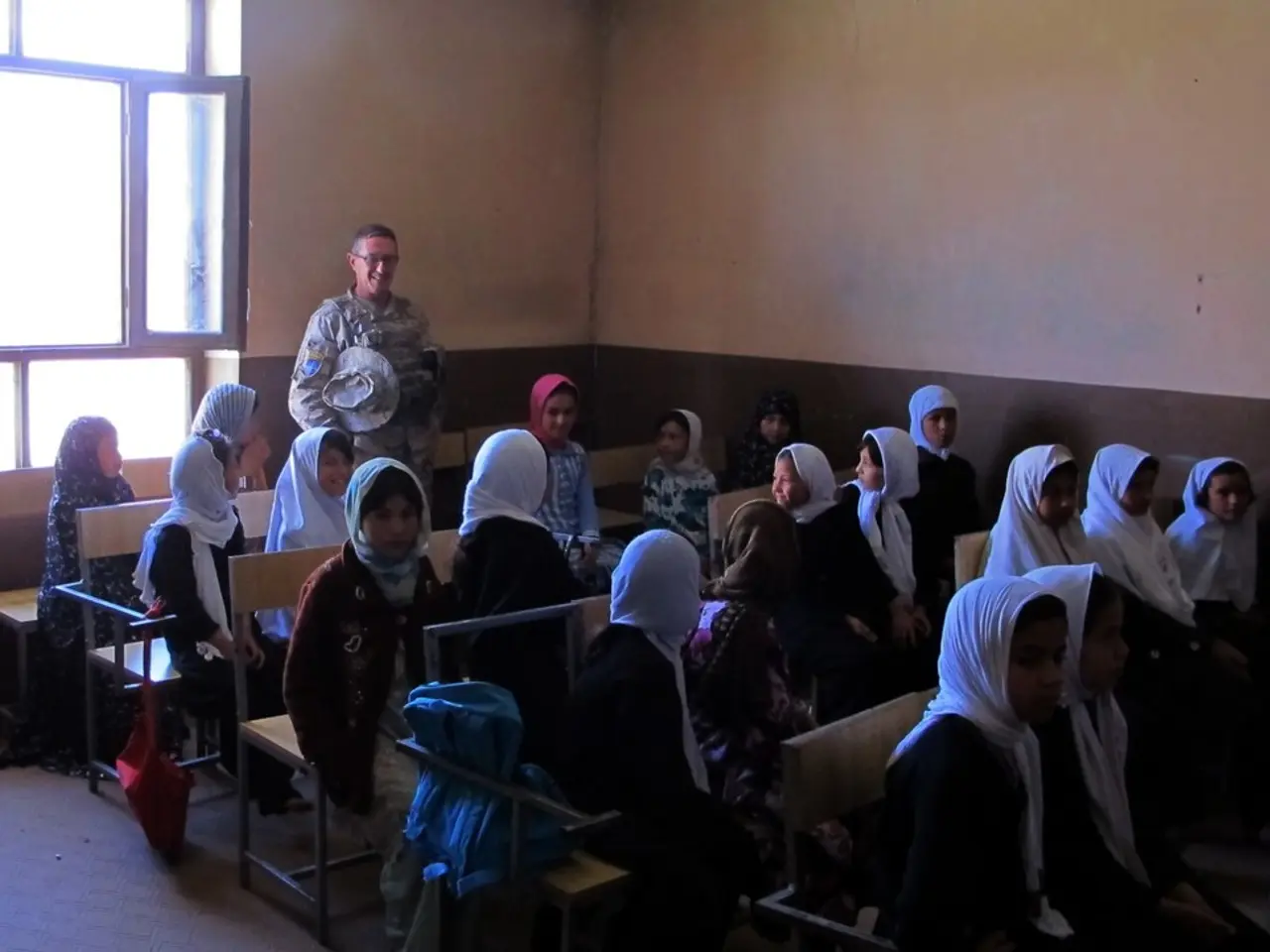Is there a lower occurrence of anti-Semitism in academic institutions like universities and colleges?
In the aftermath of the Hamas terror attack in October 2023, antisemitism among students in Germany continues to be a significant issue, according to a recent survey conducted by the University of Konstanz, funded by the Federal Ministry of Education.
The survey, which polled over 2000 people, revealed that about 40% of university leaders reported incidents of pro-Palestinian protests or antisemitic incidents. Furthermore, approximately 20% of students surveyed consider Israel an apartheid state.
The findings echo a concerning trend, with Germany experiencing a sharp increase in antisemitic crimes overall. In 2023 alone, there were 5,164 offenses recorded, and the rates have remained high into 2024 and 2025. Berlin, in particular, saw 1,383 antisemitic incidents in the first half of 2024, the highest since records began.
The survey also highlighted a "climate of fear and exclusion" at German universities, where antisemitic behaviours include threats, calls for violence, and Holocaust distortion disguised as political or human rights discourse. Antisemitic narratives are increasingly shared on social media and entering school and university environments, with terms like “Zionazi” and conspiracy theories blaming Jews for global issues becoming widespread.
Despite these alarming statistics, most universities in the survey have resources to combat antisemitism, with 85% having such resources. Study leader Thomas Hinz concludes that high vigilance is still required, especially regarding Israel-related antisemitism.
Conspiracy thinking is less prevalent among students, with around six percent holding strong antisemitic views. A broad majority of students surveyed condemn Hamas terrorism, reject military violence, and support peaceful protest.
City officials, such as Berlin’s police chief, have cautioned Jewish residents and people belonging to other vulnerable groups to exercise increased caution, particularly in neighborhoods with local sympathies toward extremist groups.
Efforts for education and prevention continue, with German universities and research organizations actively developing and evaluating educational and preventive strategies to combat antisemitism among youth, focusing on political education and addressing rhetoric related to Israel and Islamic radicalization.
For more information about the study, contact Thomas Hinz at 0711 66601-182 or c.mueller@our website.
The news of the ongoing antisemitism among students in Germany is a sobering reminder that more needs to be done to combat this issue and create a safe and inclusive environment for all students.




